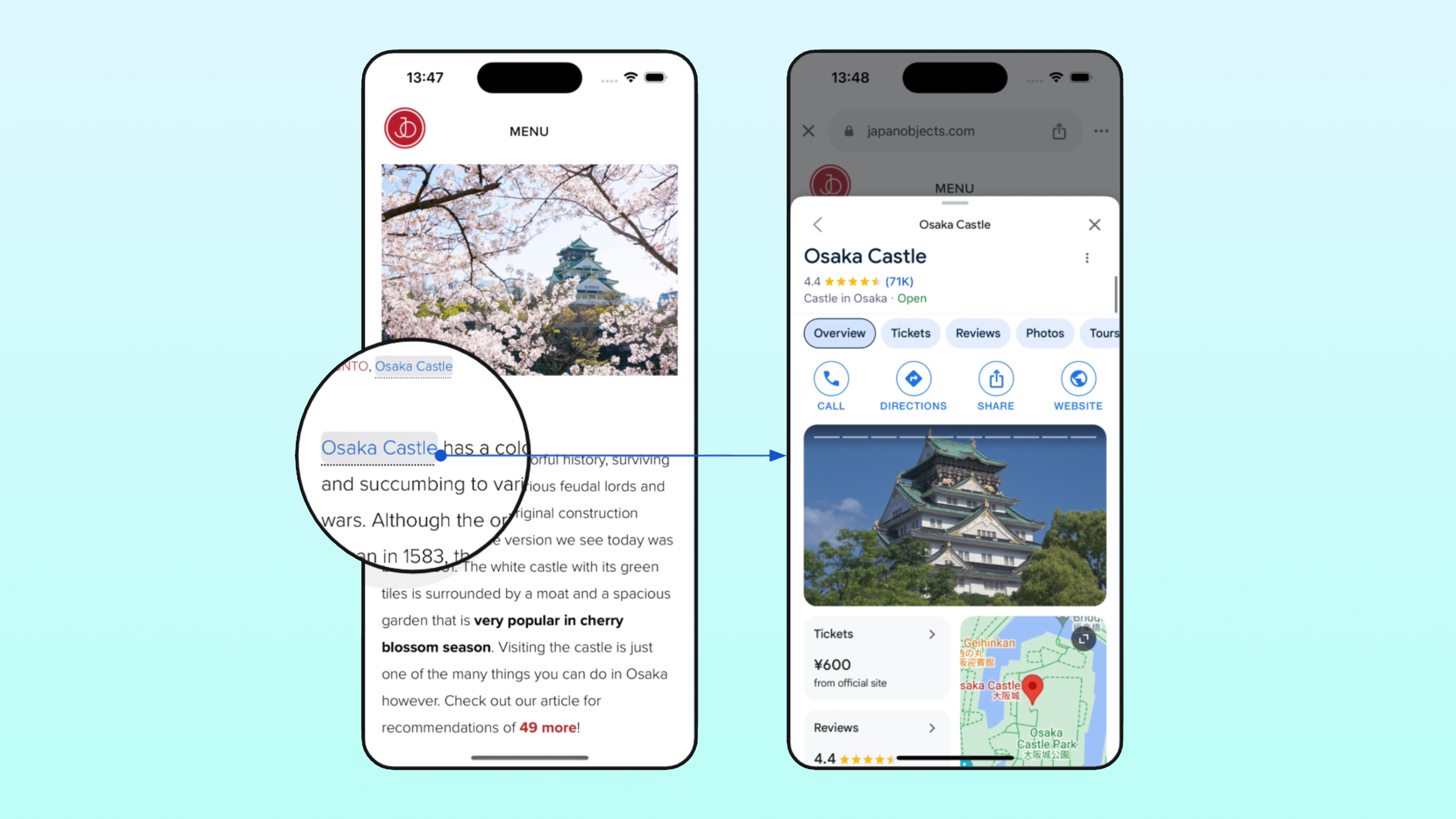
What you need to know
- Google is now inserting its own links to Google Search result cards into third-party webpages.
- The feature, called Page Annotations, is now live in the Google app for iOS.
- Web publishers can opt-out of Page Annotations, but the request can take up to 30 days to take effect.
Google is adding another tool to its web browser that could pull users away from independent sites and toward Google Search results. The company recently announced the introduction of Page Annotations to the Google app for iOS, which is a multifunctional app hosting Google Search, Gemini, and functioning as a miniature web browser. As spotted by Search Engine Roundtable and 9to5Google, Page Annotations insert links to Google Search results in plain text on third-party websites.
"Words, topics, products, places, celebrity names, and other entities that are mentioned in a page might be highlighted as clickable annotations in the Google App browser for iOS," the company explains in a support document. "By clicking the annotation, the user will be navigated to the search page with the results for this annotation."
Google does give web publishers the ability to opt-out of Page Annotations. They can do so via a Google Form. However, some site owners may be frustrated by how long it can take for their opt-out request to be processed.
"Site owners can choose to opt out of this annotation feature by submitting the opt-out form," Google explains. "The Page Annotation feature triggered on your site will be disabled within 30 days after submitting the opt-out form. You only need to do this once."

Page Annotations appear differently than regular in-text links, potentially signaling to the user that you're clicking a Google Search link rather than a redirect link from a third-party website. However, it's still possible that Page Annotations pull users away from the site they're browsing.
More likely, though, is that Page Annotations will simply be a new way for Google app users to quickly find out more information about a person, place, or thing. The Google Search results cards that appear as Page Annotations are designed in a way that makes it easy to return to the site you were previously browsing. It's also worth noting that iOS has a native Look Up feature that basically allows users to do the exact same thing, except it works system-wide on any highlighted text.
When you consider this context, it's unlikely that Page Annotations will materially change how iPhone users browse the web. If publishers are concerned, they do still have the ability to opt-out. While not explicitly listed as a test, it's fair to wonder whether Page Annotations might make their way to Chrome or Android if they are successful in the Google app for iOS.







